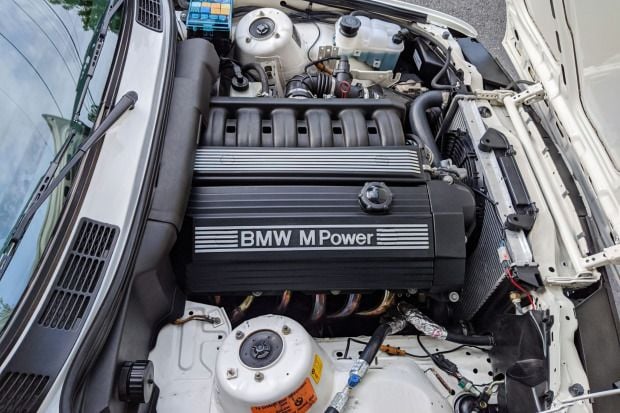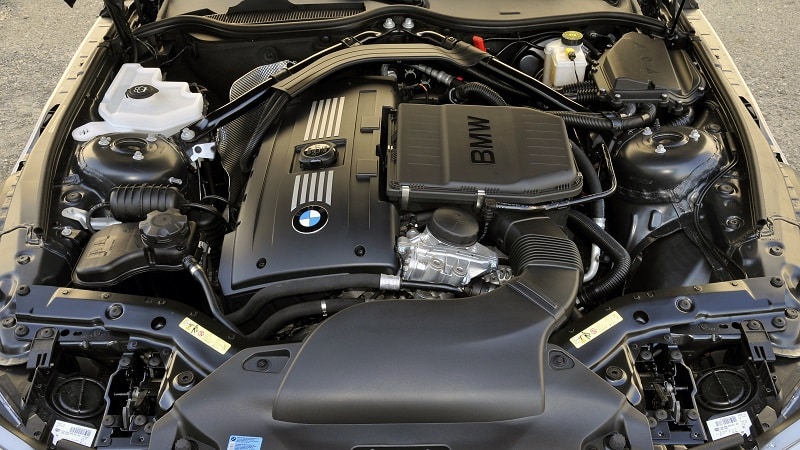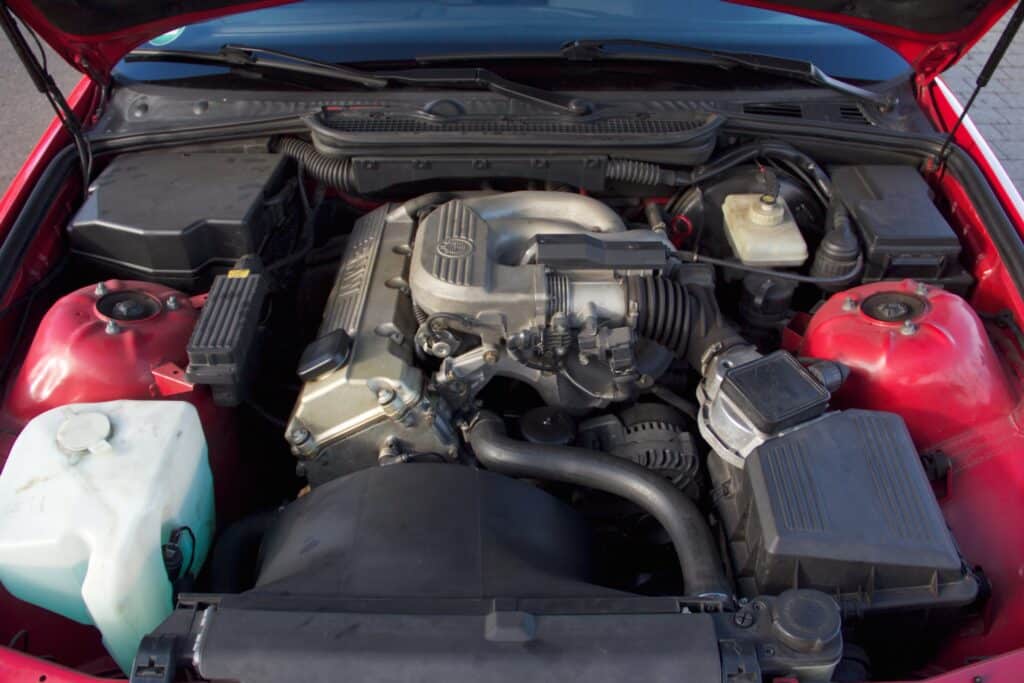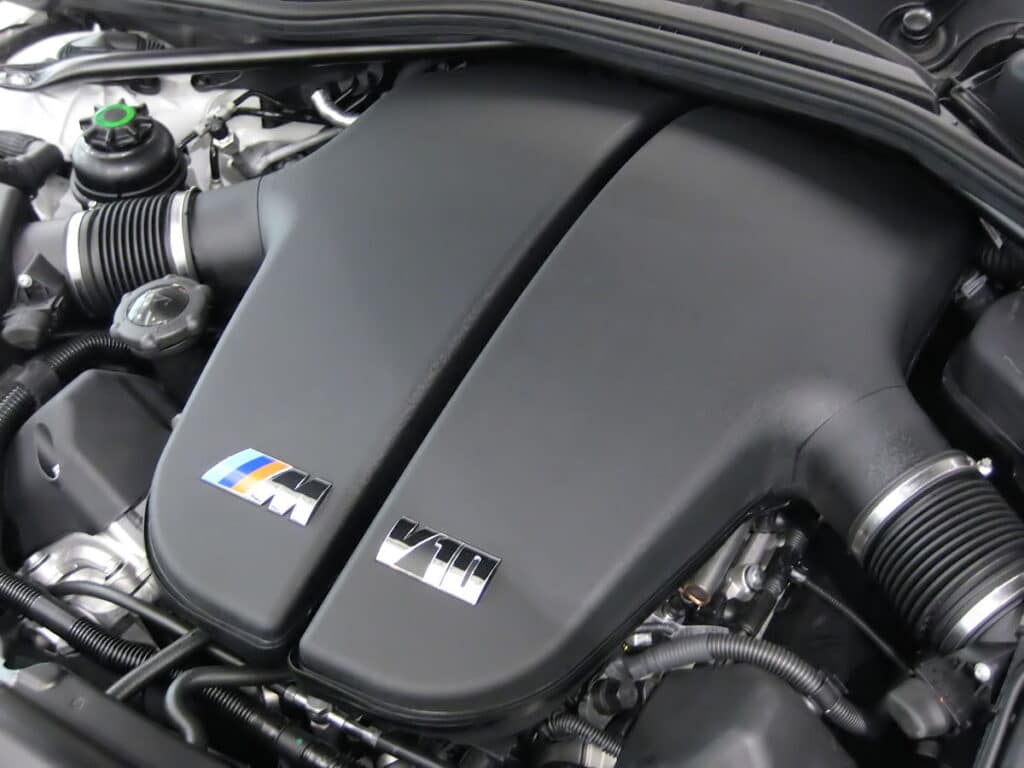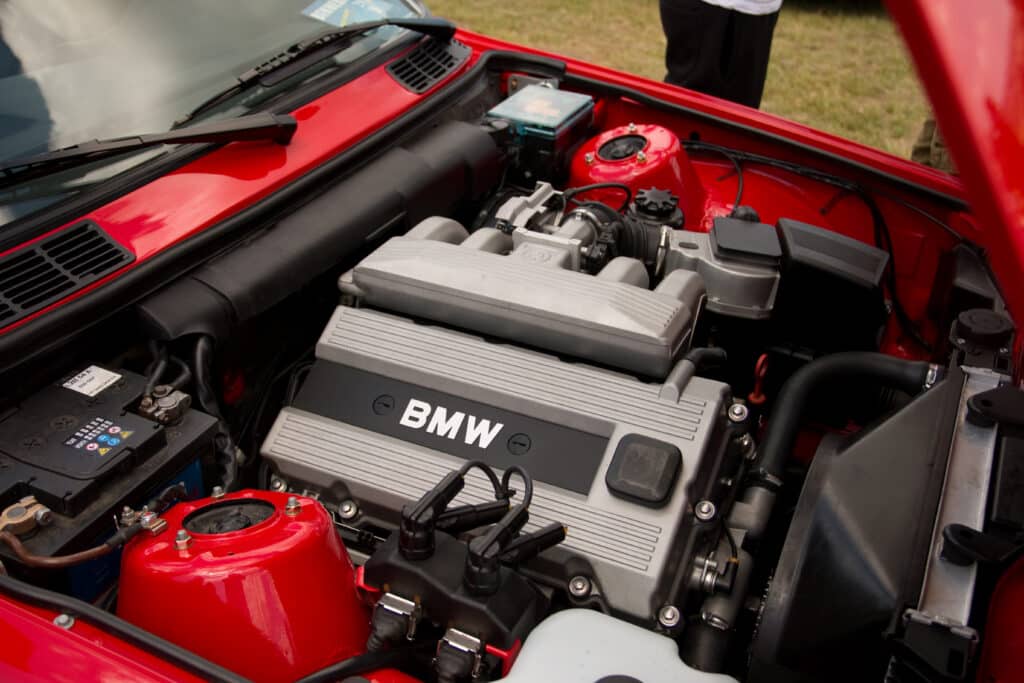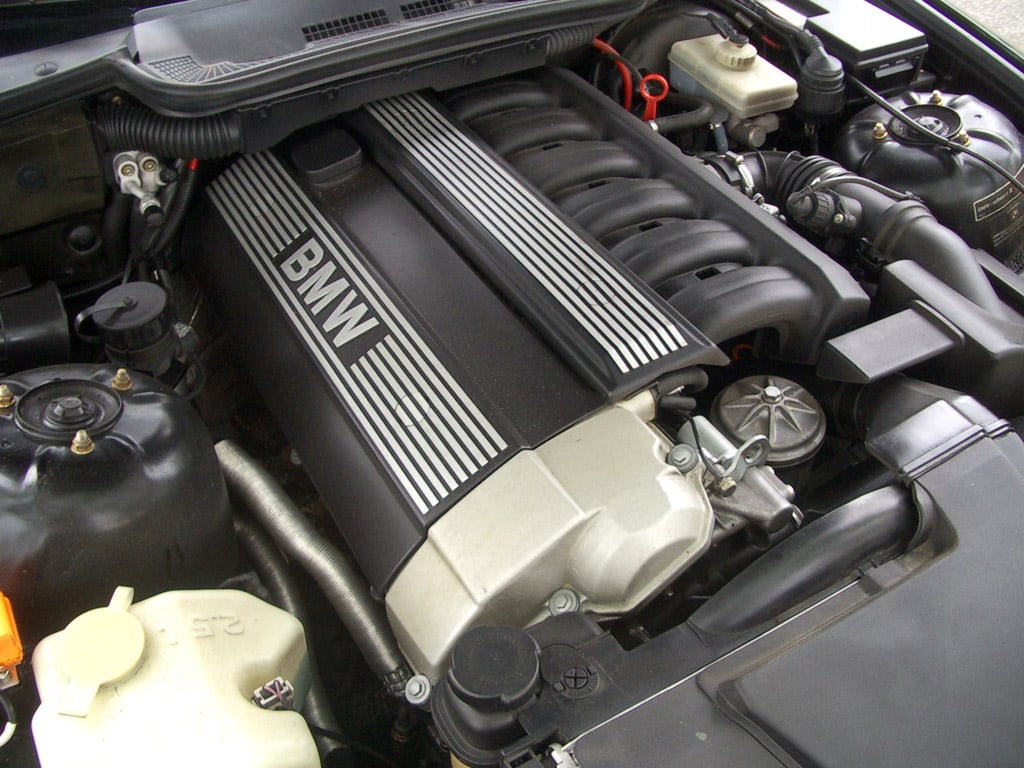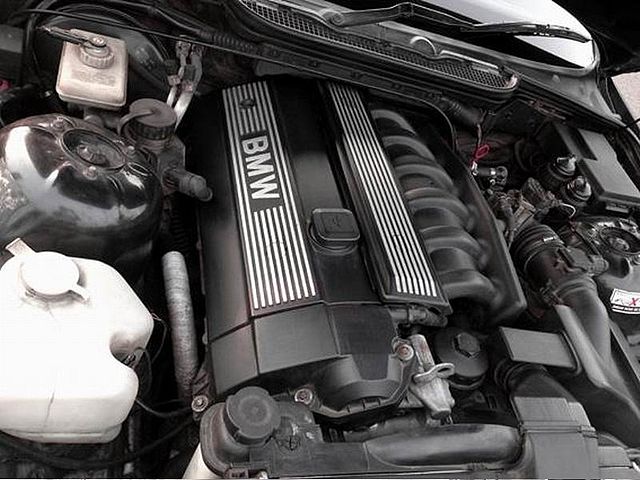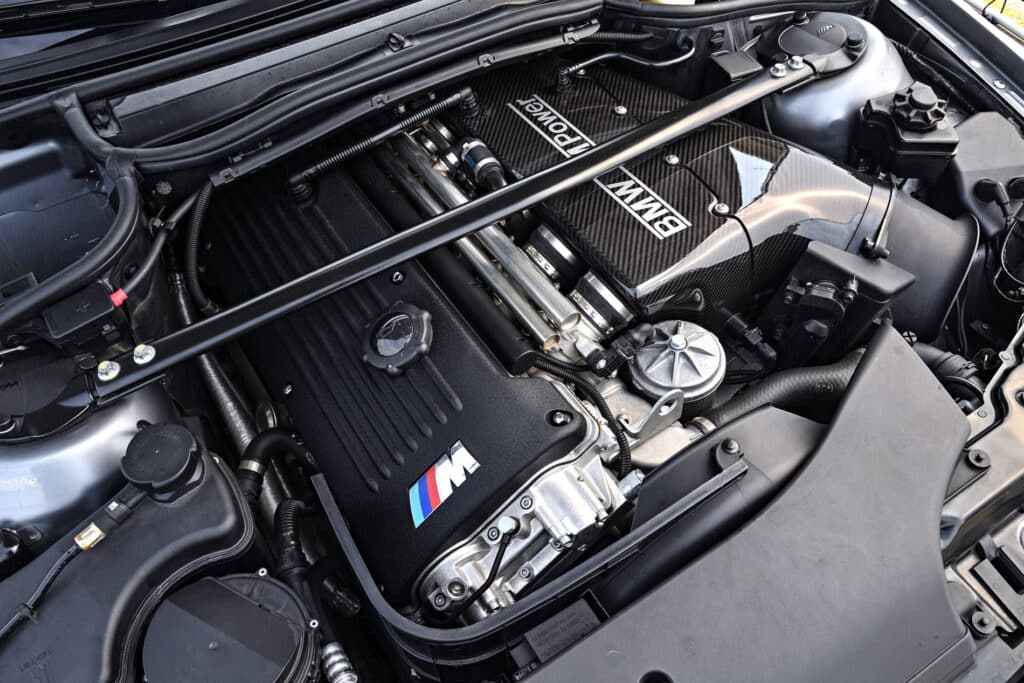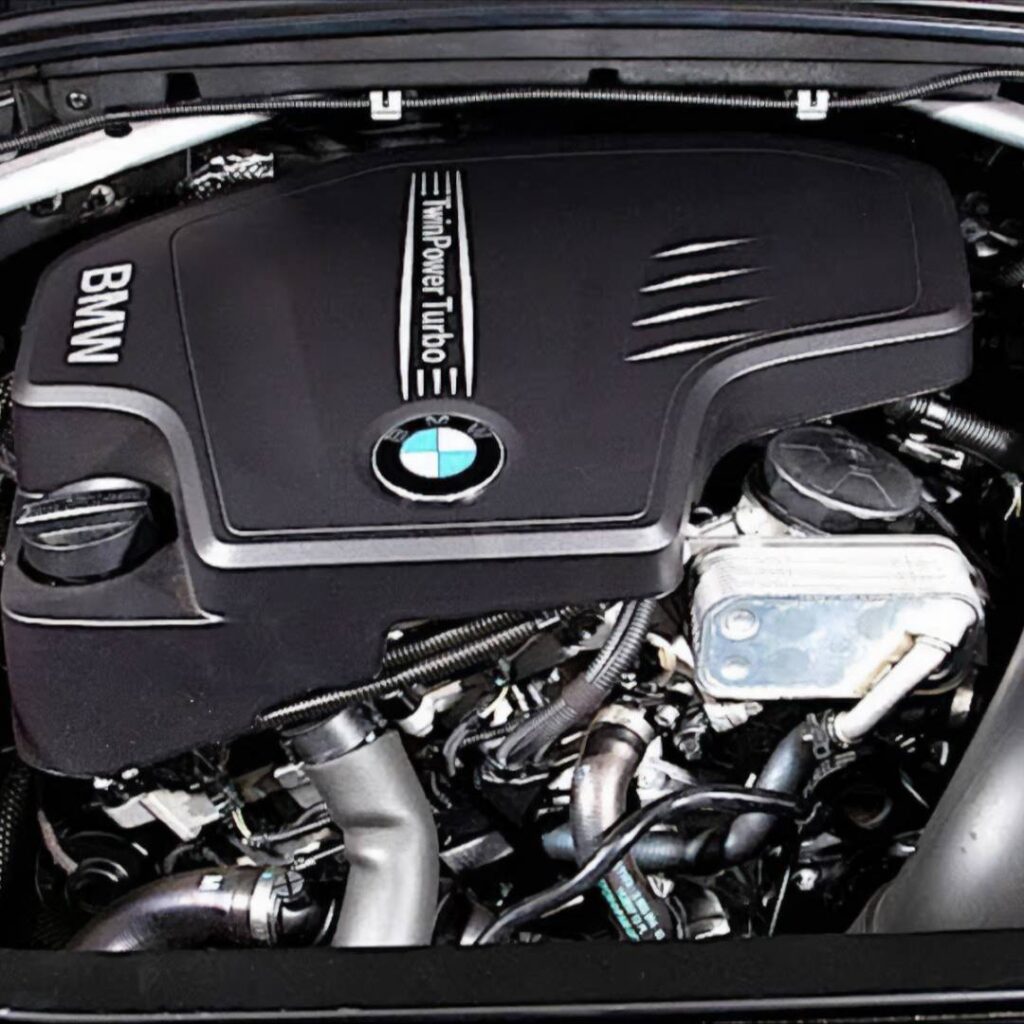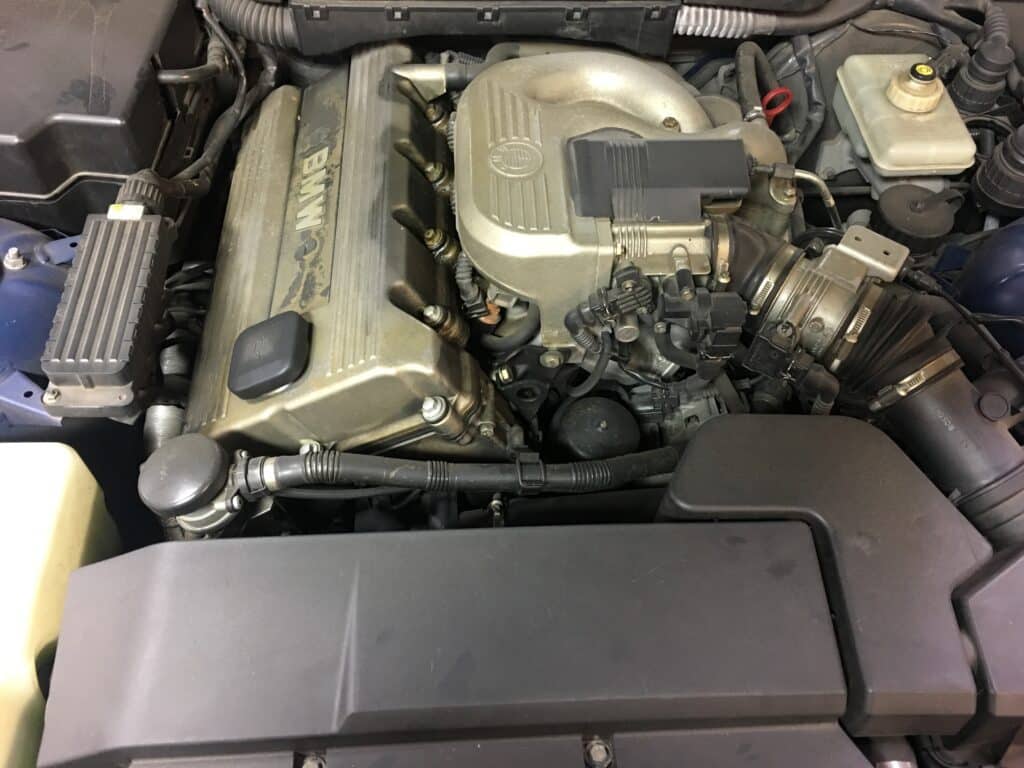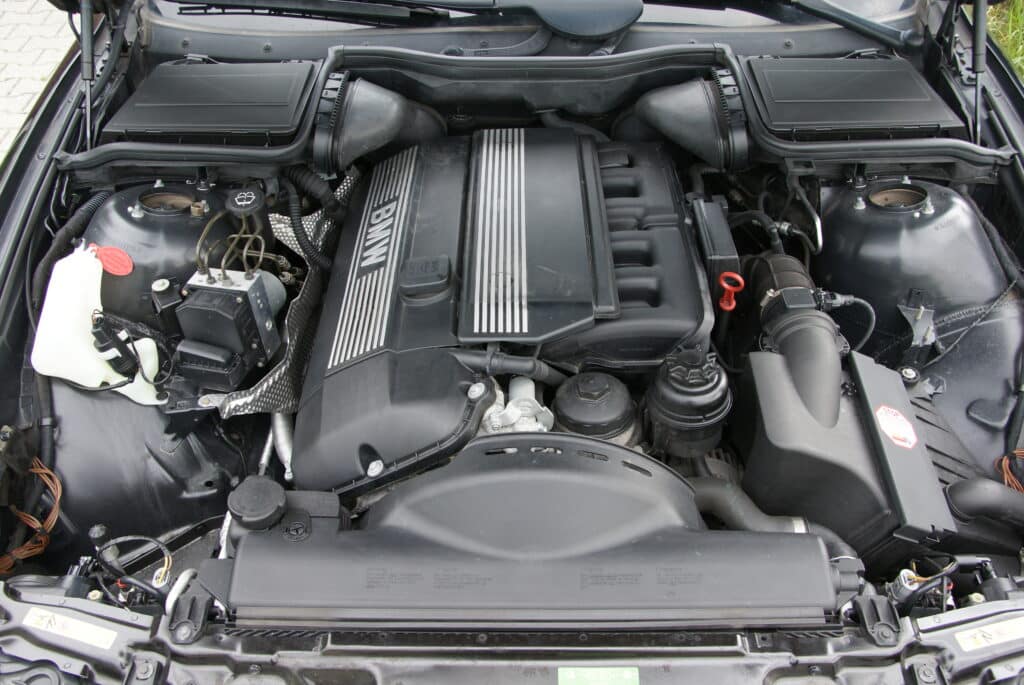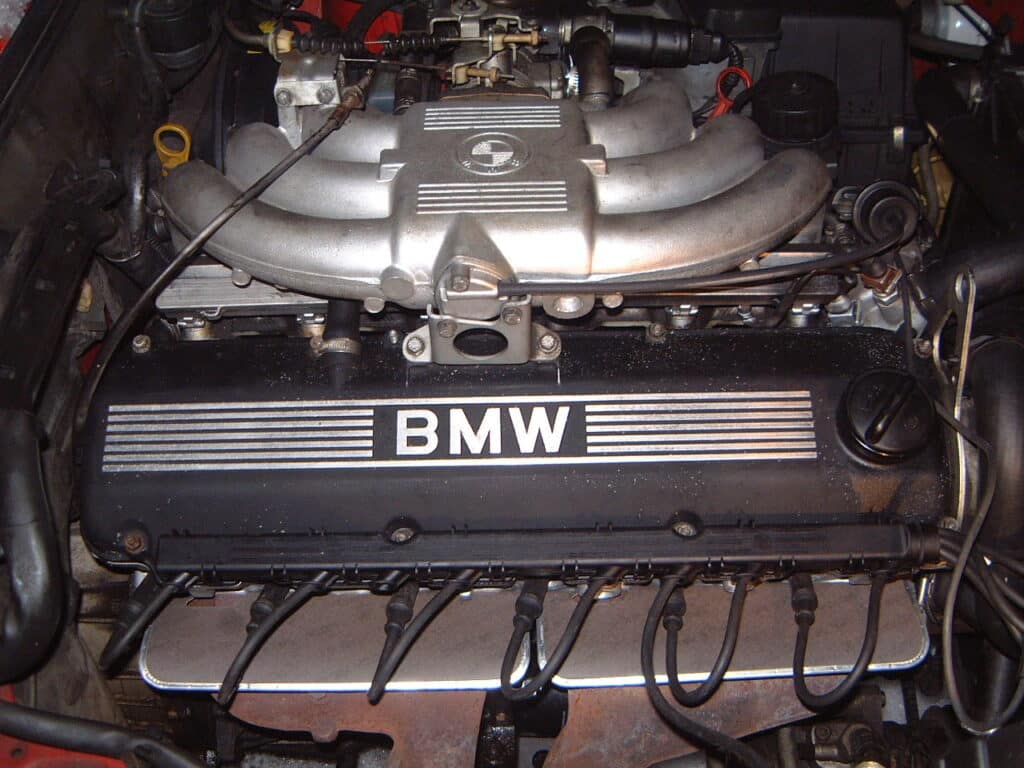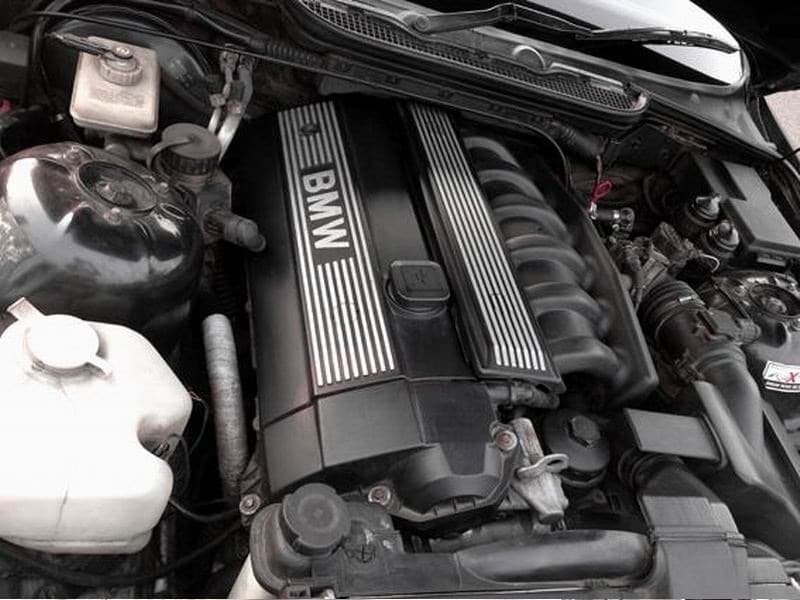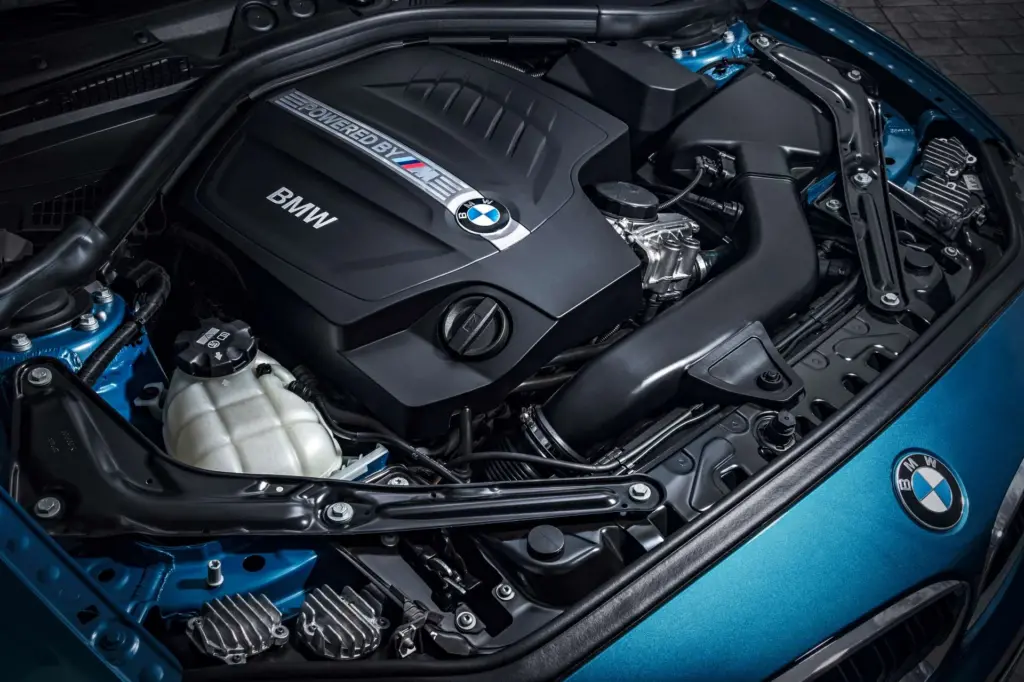The BMW M40B16 is a straight-4 SOHC petrol engine that was manufactured by BMW from 1987 to 1994. This engine comes from the M40 series, which replaced the M10 series that has been running since 1961. The M40B16 was engineered with the mindset of providing a decent power output while maintaining a respectable fuel efficiency, making it a popular choice for many BMW enthusiasts during its time.
The M40B16 is a lightweight modification of the M40 1.8-liter (marking M40B18). According to some sources, this engine has an M43 code, which is incorrect. M40 is widely used to equip younger models of BMW E30, E36, and Z3.
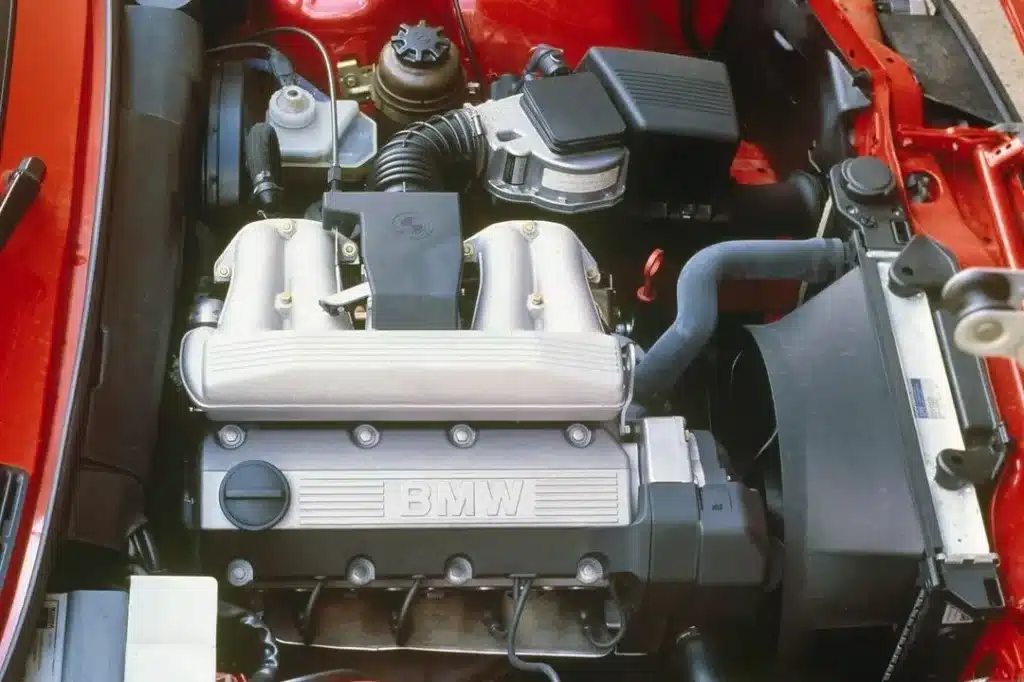
Applications
The BMW M40B16 engine was primarily used in the following car models:
- BMW 316i E30 (1988-1994): The M40B16 engine was featured in this compact executive car, providing a balance of power and efficiency that complemented the vehicle’s lightweight and agile nature.
- BMW 316i E36 (1990-1994): The engine was also a perfect match for the E36 model, which is known for its more modern design than the E30. The M40B16 engine’s reliable performance made it a good fit for the everyday commuter and the BMW aficionado, who appreciates a responsive engine in a compact yet sporty chassis.
The transition from the M10 to the M40 engine series marked a new era in BMW’s engine design, focusing on improving efficiency, reducing weight, and simplifying the engine’s construction. The M40B16, being part of this transition, carried the torch of BMW’s engineering excellence into a new decade, providing reliable service in the compact executive car segment of the market.
BMW M40B16 Engine Specs
| Specification | Detail |
|---|---|
| Manufacturer | Steyr Plant |
| Production Years | 1987-1994 |
| Cylinder Block Material | Cast Iron |
| Cylinder Head Material | Aluminum |
| Configuration | Inline-4 |
| Displacement | 1596 cc |
| Bore x Stroke | 84.0 mm x 72.0 mm |
| Valvetrain | SOHC |
| Valves per Cylinder | 2 |
| Compression Ratio | 9:1 |
| Fuel Type | Gasoline |
| Fuel System | Fuel Injection |
| Firing order | 1-3-4-2 |
The BMW M40B16 engine, meticulously crafted at the Steyr Plant, was produced from 1987 to 1994. This engine’s design is a blend of robustness and efficiency, with its cylinder block made of durable cast iron while the cylinder head is constructed from lighter aluminum.
The Inline-4 configuration is a compact design known for its smooth operation, housing a displacement of 1596 cc. With bore and stroke measurements of 84.0 mm x 72.0 mm, the engine leans towards an over-square design, favoring higher RPM operation and improved engine breathing.
The weight of the BMW M40B16 engine was around 130 kg initially, but with an update in 1991, 4 kg was added due to the update of the car’s DME (Digital Motor Electronics) unit, making the engine weight approximately 134 kg (295 lbs).
The Single Overhead Camshaft (SOHC) valvetrain is a simpler, lighter design compared to a DOHC layout, with 2 valves per cylinder, making a total of 8 valves for the engine, allowing for adequate airflow. A moderate compression ratio of 9:1 helps in achieving a balance between power output and fuel efficiency.
Running on gasoline with a fuel injection system, the M40B16 ensures precise fuel delivery for optimized combustion, enhancing both performance and efficiency.
Performance
The BMW M40B16 engine exhibits commendable performance characteristics across its versions, providing a reliable power source for the vehicles it’s housed in. The performance figures slightly vary between the two main versions, mainly due to the inclusion of a catalyst in the 1991 version, which was aimed at reducing emissions.
Power Output
The base version of the M40B16 engine, produced from 1988 to 1991 and without a catalyst, delivers a power output of 102 horsepower at 5,500 rpm and a torque of 105 lb-ft (143 Nm) at 4,250 rpm. This version showcases a fine balance between power and efficiency, making it a reliable choice for daily commuting and spirited driving.
On the other hand, the 1991 version of the M40B16 engine, which comes with a catalyst, has a slightly reduced power output of 100 horsepower at 5,500 rpm and a torque of 104 lb-ft (141 Nm) at 4,250 rpm. Including a catalyst, while slightly affecting the power and torque figures, aligns the engine with emission reduction goals, making it more eco-friendly.
The performance figures of the M40B16 engine, though not on the higher end, are decent and provide a satisfying driving experience for the user. The engine’s response and performance characteristics are in line with BMW’s tradition of creating engines that offer a good balance between power, efficiency, and environmental responsibility.
| Version | Power Output | Torque Output |
|---|---|---|
| Base (1988 to 1991 without catalyst) | 102 hp at 5,500 rpm | 105 lb-ft (143 Nm) at 4,250 rpm |
| 1991 (with catalyst) | 100 hp at 5,500 rpm | 104 lb-ft (141 Nm) at 4,250 rpm |
The slight variation in power and torque figures between the two versions illustrates the trade-off between performance and emission control, which is a crucial aspect of automotive engineering.
Fuel Efficiency
Fuel efficiency is a crucial aspect of any engine as it directly impacts the operational cost and the environmental footprint of the vehicle. The BMW M40B16 engine is designed considering the need for a reasonable fuel economy without compromising much on performance.
Factors Affecting Fuel Efficiency
Several factors can impact the fuel efficiency of the M40B16 engine, including but not limited to:
- Driving Habits: Aggressive driving, rapid acceleration, and high-speed driving tend to increase fuel consumption.
- Vehicle Maintenance: Regular maintenance, like timely oil changes, air filter replacements, and tire pressure checks, can improve fuel efficiency.
- Traffic Conditions: Stop-and-go traffic can reduce fuel efficiency as compared to steady-speed driving.
- Vehicle Load: Carrying heavy loads or towing can adversely affect fuel economy.
- Use of Air Conditioning: Using the air conditioner in hot weather can increase fuel consumption.
- Fuel Quality: Higher octane fuel can sometimes improve fuel efficiency, although the M40B16 is designed to run on regular gasoline.
Average Fuel Consumption
The average fuel consumption of the BMW M40B16 engine could range between 25 to 30 MPG (miles per gallon) under mixed driving conditions (city + highway).
However, the actual fuel consumption can vary widely depending on the aforementioned factors and the vehicle’s condition.
Adhering to a regular maintenance schedule and adopting eco-friendly driving habits can significantly improve the fuel efficiency of the M40B16 engine, making it a cost-effective choice for daily commuting and long drives.
Oil Capacity and Type
The right type of engine oil and its capacity are fundamental to ensure the smooth operation and longevity of the engine. The BMW M40B16 engine has specific recommendations when it comes to the oil type, capacity, and the interval for oil changes.
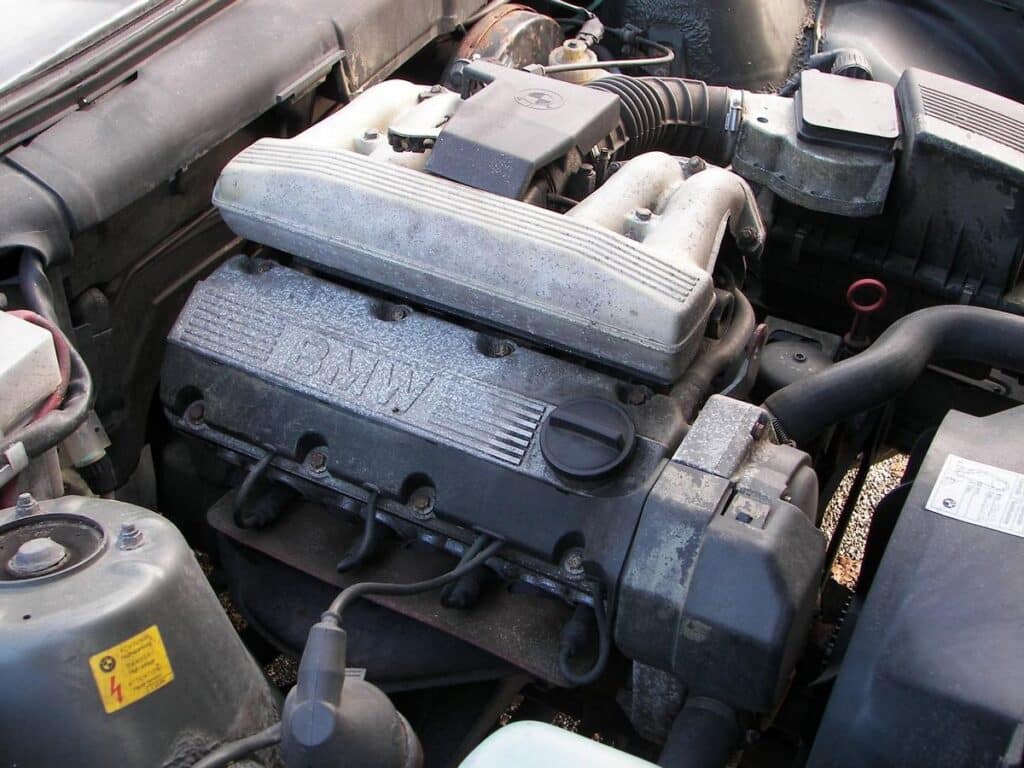
Recommended Oil Weight
The recommended oil weights for the M40B16 engine are varied, giving a range of options to choose from based on the prevailing climate and driving conditions. Here are the recommended oil weights:
- 0W-30
- 0W-40
- 5W-30
- 5W-40
- 10W-40
- 15W-50
These oil weights provide a good balance of protection, performance, and fuel economy across a wide range of temperatures.
Oil Capacity
The oil capacity for the M40B16 engine is 4.0 liters. It’s crucial to adhere to this specification to ensure the engine is adequately lubricated, thereby preventing undue wear and tear.
Oil Change Interval
The recommended oil change interval for the M40B16 engine is every 9,000 miles (15,000 km) or 12 months, whichever comes first. Regular oil changes are essential to maintain the engine’s performance and prolong its lifespan.
| Specification | Detail |
|---|---|
| Recommended Oil Weight | 0W-30, 0W-40, 5W-30, 5W-40, 10W-40, 15W-50 |
| Oil Capacity | 4.0 liters (4.3 quarts) |
| Oil Change Interval | 9,000 miles (15,000 km) or 12 months |
It is crucial to adhere to the recommended oil type, capacity, and change interval to maintain optimal performance and reliability of the BMW M40B16 engine.
Cooling System
A proficient cooling system is indispensable for the operation of the BMW M40B16 engine, as it ensures the engine maintains an optimal operating temperature, preventing overheating and consequent damage.
Here are the specifics regarding the coolant type, capacity, and change intervals for the M40B16 engine.
Recommended Coolant Type
BMW recommends using a phosphate-free, silicate-free, nitrite-free, and amine-free antifreeze/coolant. A 50/50 mixture of water and antifreeze is ideal to provide protection against both freezing and boiling over.
Coolant Capacity
The coolant capacity for the M40B16 engine is around 6.5 to 7.0 liters. It’s crucial to maintain this level to ensure adequate cooling and prevent potential engine damage.
Coolant Change Intervals
The recommended interval for changing the coolant in the M40B16 engine is every 2 years or 30,000 miles, whichever comes first. Regular coolant changes are essential to ensure the effectiveness of the cooling system and prevent corrosion and deposits in the cooling system.
| Specification | Detail |
|---|---|
| Recommended Coolant Type | Phosphate-free, silicate-free, nitrite-free, and amine-free antifreeze/coolant |
| Coolant Capacity | 6.5 to 7.0 liters |
| Coolant Change Intervals | Every 2 years or 30,000 miles |
Maintaining the proper coolant type, and level, and adhering to the advised change intervals is fundamental for ensuring the long-term reliability and efficiency of the cooling system, thereby safeguarding the BMW M40B16 engine from potential overheating issues.
Timing Belt Or Chain?
The timing system of the BMW M40B16 engine is a critical component that ensures precise synchronization between the engine’s camshaft and crankshaft, allowing the valves and pistons to operate harmoniously. Any misalignment in the timing system could lead to serious engine damage, making its maintenance paramount.
The M40B16 engine employs a timing belt to synchronize the movements of the camshaft and crankshaft. This ensures that the intake and exhaust valves open and close at the correct times during the cylinder’s intake and exhaust strokes.
Timing Belt or Timing Chain
This engine utilizes a timing belt. Unlike a timing chain, a timing belt is quieter and more efficient but requires replacement at regular intervals due to wear and tear.
Timing Belt Replacement Recommendations
The timing belt on the M40B16 engine is known for its short longevity, necessitating frequent replacements. It’s highly recommended to replace the timing belt every 30,000 miles to prevent any potential engine damage and ensure the engine continues to operate smoothly.
| Specification | Detail |
|---|---|
| Timing System Type | Timing Belt |
| Timing Belt Replacement | Every 30,000 miles |
It is crucial to adhere to the recommended timing belt replacement interval to prevent severe engine damage that could result from a timing belt failure. If any signs of wear or damage are noticed during routine inspections, it is advisable to replace the timing belt sooner.
BMW M40B16 Engine Problems And Reliability
Like any other engine, the BMW M40B16 engine has its share of common issues that may arise over time, particularly as the engine ages. Here are some of the common problems associated with the M40B16 engine along with suggested troubleshooting and repair solutions.
Common Issues
- Unreliable Timing Belt:
- The timing belt in the M40B16 engine is known to have a relatively short lifespan, necessitating frequent replacements to avoid catastrophic engine damage.
- Aging Engine Requiring Rebuild or Replacement of Old Parts:
- As the engine ages, it may require a rebuild or replacement of worn-out parts to keep it running smoothly.
- Expensive BMW Parts:
- BMW parts can be expensive, and finding affordable replacements or repair solutions can be challenging for some owners.
Suggested Troubleshooting and Repairs
- Timing Belt:
- Regular inspection of the timing belt for signs of wear, cracking, or missing teeth is crucial. Adhere to the recommended replacement interval of every 25,000 miles or replace sooner if any damage is observed.
- Engine Rebuild/Replacement:
- If the engine has high mileage or shows signs of significant wear, a rebuild or replacement of crucial components like pistons, rings, bearings, and seals might be necessary. It’s advisable to consult with a reputable mechanic who is experienced with BMW engines for an accurate assessment and recommendations.
- Affordable Parts and Repairs:
- Look for reputable aftermarket parts as a cost-effective alternative to expensive OEM parts. Additionally, consider consulting with independent BMW specialists who might offer competitive pricing compared to dealerships for repairs and maintenance.
The M40B16 engine is a robust and efficient power unit, but like any mechanical system, it requires regular maintenance and timely repairs to ensure its longevity and reliable performance.
By addressing common issues promptly and adhering to a regular maintenance schedule, owners can enjoy a satisfying and trouble-free ownership experience.
Long-term Reliability
The BMW M40B16 engine is known for its durable and reliable nature when maintained properly. Like any engine, its longevity significantly depends on the adherence to maintenance schedules and the quality of parts used during its lifespan. Here’s a breakdown of the engine’s long-term reliability and common maintenance requirements.
Lifespan
The typical lifespan of a well-maintained M40B16 engine ranges between 180,000 to 200,000 miles. This longevity is a testament to the engine’s robust design and the quality of materials used in its construction. However, the actual mileage can vary based on factors such as driving conditions, maintenance history, and whether any modifications have been made to the engine.
Common Maintenance Requirements
To achieve the upper end of the engine’s lifespan, regular maintenance is crucial. Here are some common maintenance tasks associated with the M40B16 engine:
- Oil Changes: Regular oil changes every 9,000 miles (15,000 km) or 12 months, whichever comes first, using the recommended oil type and weight.
- Coolant Changes: Replacing the coolant every 2 years or 30,000 miles to ensure the cooling system operates effectively.
- Timing Belt Replacement: Due to the short lifespan of the timing belt, it’s advisable to replace it every 25,000 miles to prevent potential engine damage.
- Spark Plug and Ignition System Maintenance: Regular inspection and replacement of spark plugs and other ignition system components to ensure optimal engine performance.
- Air and Fuel Filter Replacement: Regular replacement of air and fuel filters to ensure clean air and fuel are supplied to the engine.
Diagnostic Procedures:
- OBD-II Scanning: Utilize an OBD-II scanner to identify engine error codes.
- Compression Testing: Conduct compression tests to assess the engine’s health.
| Maintenance Task | Recommended Interval |
|---|---|
| Oil Changes | Every 9,000 miles or 12 months |
| Coolant Changes | Every 2 years or 30,000 miles |
| Timing Belt Replacement | Every 25,000 miles |
| Spark Plug Replacement | As per manufacturer’s guidelines |
| Filter Replacements | As per manufacturer’s guidelines |
By adhering to these common maintenance tasks and ensuring any repairs are carried out promptly, the BMW M40B16 engine can provide many years of reliable service.
Modifications and Variants
The BMW M40B16 engine underwent a significant modification during its production years to comply with the evolving emission standards. This modification primarily revolved around including a catalyst to reduce harmful emissions. Here’s a detailed breakdown of the two main variants of the M40B16 engine based on the presence or absence of a catalyst.
Version Without Catalyst (1988 to 1991)
This version of the M40B16 engine was produced from 1988 to 1991. It could produce a power output of 102 horsepower at 5,500 rpm and a torque of 105 lb-ft (143 Nm) at 4,250 rpm. The absence of a catalyst allowed for slightly higher power and torque figures as there were fewer restrictions in the exhaust system.
Version With Catalyst (1991 onwards)
In 1991, to adhere to stricter emission standards, BMW introduced a version of the M40B16 engine equipped with a catalyst. This modification resulted in a slight reduction in power and torque figures, with the engine now producing 100 horsepower at 5,500 rpm and a torque of 104 lb-ft (141 Nm) at 4,250 rpm.
The inclusion of a catalyst was a significant step towards making the engine more environmentally friendly by reducing harmful emissions.
| Variant | Production Years | Power Output | Torque Output |
|---|---|---|---|
| Without Catalyst | 1988 to 1991 | 102 hp at 5,500 rpm | 105 lb-ft (143 Nm) at 4,250 rpm |
| With Catalyst | 1991 onwards | 100 hp at 5,500 rpm | 104 lb-ft (141 Nm) at 4,250 rpm |
These modifications reflect BMW’s commitment to adapting to environmental regulations while continuing to offer reliable and efficient engines. Despite the slight reduction in power and torque figures with the inclusion of a catalyst, the M40B16 engine continued to provide a satisfying performance and became a more eco-friendly option in the BMW engine lineup.
FAQs
- What is the displacement of the BMW M40B16 engine?
- The BMW M40B16 engine has a displacement of 1,596 cc.
- What are the bore and stroke dimensions of the M40B16 engine?
- The bore and stroke dimensions are 84.0 mm x 72.0 mm, respectively.
- What is the valvetrain configuration of the M40B16 engine?
- The engine features a Single Overhead Camshaft (SOHC) valvetrain configuration with two valves per cylinder.
- What is the compression ratio of the M40B16 engine?
- The compression ratio of the engine is 9:1.
- What type of fuel system does the M40B16 engine utilize?
- The engine uses a Multi Point Fuel Injection (MPFI) system.
- What are the power and torque outputs of the M40B16 engine?
- The engine produces around 100-102 hp at 5,500 rpm and 141-143 Nm of torque at 4,250 rpm, depending on the specific model and year.
- What is the recommended engine oil for the BMW M40B16 engine?
- The recommended engine oil is either SAE 5W-30 or 5W-40.
- What is the oil capacity of the BMW M40B16 engine?
- The oil capacity is 4.0 liters.
- What are the recommended spark plugs for the M40B16 engine?
- Recommended spark plugs include Bosch F8LCR, Champion C9YCC, and NGK ZFR5F-11 with a spark plug gap of 0.7-0.9 mm.
- In which vehicles was the BMW M40B16 engine used?
- The engine was used in the BMW 316i (E30) from 1988 to 1994, the BMW 316i (E36) from 1990 to 1994, and the Bertone Freeclimber 2 from 1992 to 1993.

